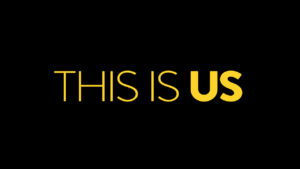This week’s “This is Us” opened with a curveball: What if Jack Pearson hadn’t died?
We see two separate scenarios — best- and worst-case — from Randall’s perspective. And, it turns out, Randall’s mental health issues don’t seem to stem from the loss of his dad, at all.
*Spoilers ahead!*
In a session with his therapist, Randall is asked to describe how his life might have been different, had his adoptive father Jack survived the house fire. He launches into a fairy-tale story of how he would have met his birth father earlier, saved him from his cancer, caught his mother’s dementia earlier — the whole shebang.
But, when his therapist asks for a realistic “what-if,” centering on what Randall is most afraid of, he has quite a different perspective. His mother and father’s marriage would crumble when Jack found out about Rebecca’s decision to keep Randall’s birth father information from him, his birth father would want nothing to do with Randall, Randall’s relationship with his mother would never improve, and they would only reconcile when her dementia was discovered.
As his therapist points out, the first event in each scenario is the reveal that Rebecca had been hiding information about Randall’s birth father.
It’s a concept that will hit any member of the adoption triad especially hard — and teaches us a few lessons about adoption along the way.
1. An Adoptee Has the Right to Know
Rebecca’s decision to keep her adopted son in the dark about his birth family history demonstrates exactly why transparency and honesty are so important in adoption. She may have thought she was doing “what was best” by keeping Randall away from a birth parent she suspected was an addict, but his birth parents’ story — the good and bad parts — were an integral part of his own story. And he deserved to know.
This one betrayal by his adoptive mother impacted Randall ever since. A closed adoption or inaccurate family history does the same to many other adoptees, too. An adoptee has the right to know about his history, whatever it may be. It’s crucial to building a self-identity and accepting their adoption placement.
That’s why here, at American Adoptions, we require adoptive parents to be open to post-placement contact, in accordance with the birth parent’s requests. We educate all adoptive parents about the benefits of open adoption — not just for the birth parents but for the mental health of the adoptee. As “This is Us” shows us, a closed adoption can be detrimental to an adoptee’s developing identity, and adoptees should never be left in the dark about their own biological and adoption history.
2. Even in Closed Adoptions, Birth Parents Often Still Care
In the worst-case scenario, Randall’s birth father shuts the door in his face when he meets him for the first time. He denies having a son, and Randall never has a relationship with him. However, when his birth father dies, Randall receives a box full of newspaper clippings about his success, as well as a book of poems written for him by his birth father.
Closed adoptions are difficult for all involved, but they were common for decades. Many adoptees spend their whole lives wondering about their birth parents and biological history, wondering, “Why did my birth parents abandon me? Did they even care?”
And, while every adoption situation is different, Randall’s story shows that even birth parents in closed adoptions still think about and care for the child they placed for adoption. In Randall’s birth father’s case, he may not have been sober enough to be a healthy part of his birth child’s life — but he still considered Randall an important part of his own life and story.
3. Adoptive Parents Should Support Their Child’s Search and Reunion
In both of Randall’s imagined scenarios, his adoptive father Jack plays a key role in his search and reunion. He supports Randall’s choice to go find his birth father after Rebecca reveals the information she had been hiding, and he is there to support him through the resulting relationship in the best-case scenario.
It’s a key difference from Rebecca, who has kept this information to herself rather than use it to help her adopted son connect with his birth heritage. It’s a message “This is Us” has demonstrated time and time again — adoptive parents should be willing and excited to support adopted children through this important search, or long-lasting issues can arise for the adopted child. Here at American Adoptions, we believe the same thing, and we are always here to provide support for post-placement contact, if needed.
You can watch “This is Us” online here.



